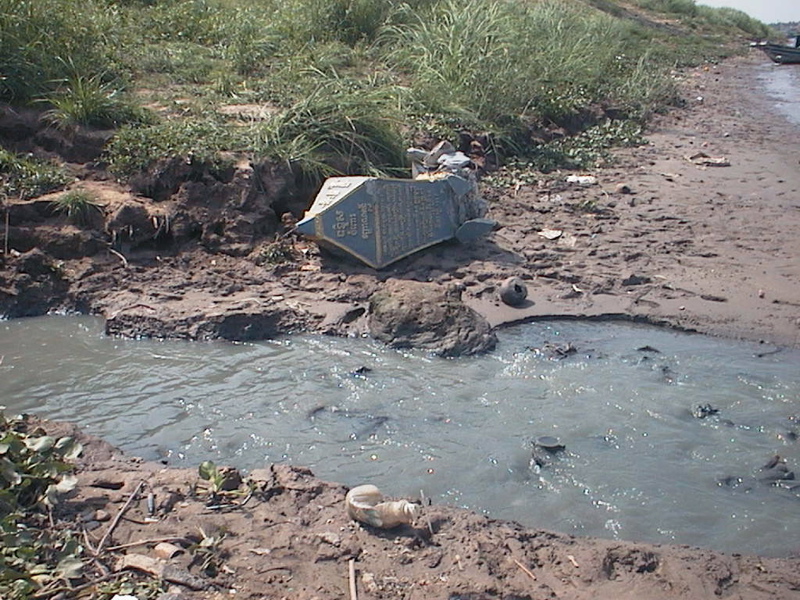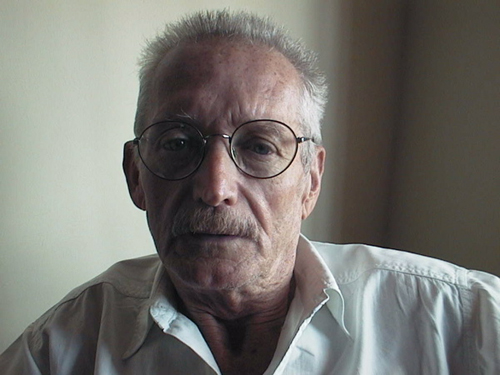16 |
AMBASSADOR KENNETH QUINN completed his mission on July 25, 1999, having won the State Department Award for Human Rights and Democracy for his embassy in Phnom Penh.
Now in his sixties, he is executive director of the World Food Prize Foundation in Des Moines. Quinn told us he has no idea who the FBI’s findings point to in the case of the grenade attack, and offered no theories as to who might be guilty.[n]
The FBI never returned to interview Brazil, and almost certainly never will; he has never been heard from again.[n] Nicoletti left the FBI to work in the federal air marshall program after September 11, 2001.
 | |
PHOTO: RICH GARELLA | |
On the third anniversary of the massacre, Rainsy returned with his supporters to the park and erected a small concrete memorial. The police swooped in and by morning it lay in a sewage ditch by the edge of the river, the gold-painted names of the dead smeared with effluent.[n]
Recognized by the world as Cambodia’s only prime minister, Hun Sen later gloated when asked about the investigation. “Once the grenades exploded, already they blamed it on Hun Sen,” he told Asiaweek magazine. “I am not sure whether it is true or not, but it is reported by newspapers that the FBI have concluded that it seems likely that the case of throwing grenades in front of the National Assembly was carried out by Sam Rainsy himself.”[s]
There is little reason to hope he will be corrected any time soon.[n] FBI officials told the Senate Foreign Affairs Committee in 2001 that the investigation was neither active nor closed, and the findings had not been turned over to the Department of Justice. The FBI, it seems, has no intention of revealing what it discovered.
If Hun Sen continues to successfully conceal domestic repression with a democratic facade for foreign consumption, his regime may endure—with the tacit approval of the United States—for decades. Twenty years after he first rose to to the top of Cambodian politics, it appears he may last longer than perennial dictators such as Suharto or Mobutu Sese Seko.
“Remaining in office for another two terms will make me 60 years old, but that is not too old,” he has said.[s] At other times, he has spoken of remaining until he is 70.
The Cold War rationales under which the United States supported dictatorships in Chile and Iran in the 1970s, and El Salvador and Guatemala in the 1980s, has been reborn in a soft war of public relations and diplomatic convenience. A people’s hope for justice has been sacrificed to the goal of stability.
Ron Abney still walks, with a grimace and a limp, through the corridors of Congress. Tom Nicoletti’s card is in his pocket. He wants the FBI’s original report made public.[n] As an American who loves Cambodia, he dreams that one day the country will escape the shadow of the Khmer Rouge, that it will break a decades-old curse.
He hasn’t given up hope entirely. He expects to get his grenade fragment back one day, he says, “when everybody at the State Department is dead.”

PHOTO: RICH GARELLA
